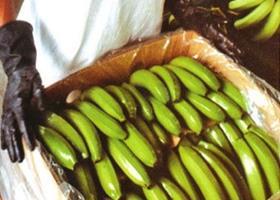
Iran’s sudden ban on agricultural imports in late September has been causing a great deal of turmoil in the Philippines, one of the main suppliers of fresh fruit to the Middle Eastern market.
As the ban continues with no immediate signs of resolution, Philippine exporters have begun desperately appealing to their government to negotiate with Iran.
Bananas constitute the majority of the Philippine fruit trade to Iran, which prior to the ban represented the Philippines’ fourth largest export market for the fruit. Exporters have estimated the loss of market access will cost the industry around 170m pesos (US$3.93m) annually.
Besides bananas, Iran’s ban prohibits imports of 49 different agricultural products, including fruits, fruit concentrates and dairy products.
“The list of products includes onions, garlic, potatoes, pears, strawberries as well as apples and oranges,” Stephen Antig, president of peak body the Pilipino Banana Growers and Exporters Association, tells Fruitnet.com.
“I believe these are what the `Iran` Agriculture Ministry classified as non-essential imports.”
Without a quick lifting of the ban, the Philippine banana industry is expected to feel some unpleasant consequences. In the short term, banana supplies previously destined for export to Iran must be redirected to other markets, pushing down prices.
Longer term, it’s likely plantations will close down and jobs will be lost, says Dicky Puyod, general manager of exporter Philippine Fresh Fruits Corp.
“`Iran was a` very significant market; about 15-20 per cent of market share,” he tells Fruitnet.com. “The industry forecast was 30m boxes for Iran this year, assuming that this problem did not come along.”
Speculation on Iran’s motivation for the sudden ban ranges from protectionism to increased political friction with the US, of whom the Philippines is seen to be an ally. But whatever the cause of the problem, the possible resolution is out of the hands of exporters, Philippine industry figures say.
“Our government agencies have started talking with their counterparts in Iran,” explains Mr Antig. “I believe this was initiated after we wrote to the President. Nothing concrete has been achieved yet, but the prospects are there that an arrangement will be made soon.”
The Philippine Department of Trade and Industry has reached out to its counterpart in Iran about the issue, details Mr Puyod, although he believes it must go higher than this level for a quick resolution.
This latest ban is not the first such sudden closure from Iran to imported fresh produce. In January this year Iran closed its borders to Pakistani kinnows during their season, following a disagreement over shipping procedures. The market reopened after only a few weeks, but exporters reported taking millions of rupees in damages.



